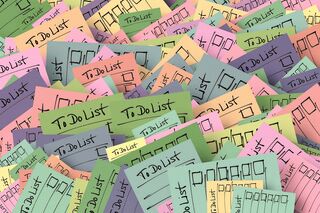
Understanding Self-Hatred: Causes, Effects, and How to Heal
Self-hatred is an excruciating and often silent struggle. It’s more than just low self-esteem—it’s an intense, persistent feeling of dislike


When I polled a group of friends to find out their favorite memory tips and tricks, the most common response was, “Sorry, I don’t remember.” Haha. I guess I’m acquainted with more comedians than I thought.
Fortunately, other people had scads of useful ideas for triggering memories. This blog will be devoted to the best memory tips I could find from experts, friends, and my own experience. At the end of the blog, I’ll offer a few research-based tips for strengthening memory at any age.
While it’s true that some forgetfulness occurs with aging, memory lapses can happen to anyone, according to psychologist Lydia Cho. Still, it’s disconcerting when a name or a fact slips your mind. Here are seven general strategies you can use to minimize memory mishaps.
Ironically, the most powerful memory tip might be… “Don’t try to remember.” Instead, the instant you think of something you want to act on later, write it down. Yes, make lists.
This practical idea comes from productivity guru David Allen in his classic book, Getting Things Done. If your brain is filled with to-do items, project ideas, long-term goals, short-term goals, grocery lists, and whatever, you can easily feel overwhelmed. Allen advises you to capture “all the things that need to get done—now, later, someday, big, little, or in-between—into a logical and trusted system outside of your head and off your mind.” (Italics are mine.)
I would add: Forget things that don’t matter to you. In other words, first set priorities. Then pay attention only to what is essential to your goals and values. Sweep the rest out of your mind… or into a folder that you can look at again if you need to.
It’s striking that only a few of the tips below rely on actual memory. The rest depend more on habits, systems, and records. Like this one:
Here are a few trusted tactics to get your to-dos off of your mind and onto a list ASAP:
1. Email yourself from your cellphone. This is my favorite technique. I email myself reminders, articles from newsletters and social media, items to put on my Master To-Do List (“The List of Lists”), and everything else.
2. Use your phone or paper calendar. One friend enters everything she wants to do as an “Event” on her cellphone calendar. Others write goals and tasks on their paper calendar as if they were appointments, such as: “10 a.m.: Exercise.” “Find a time for it” is one of the most effective ways to follow up on your goals
3. Write notes in large letters on a whiteboard, a notepad, or a sticky note. Then tape them to a spot where you can’t not see them.
4. Use general terms to back up specific ones. On your phone contact list, for example, add a title or category to a name: “Dr. Samantha Brown, neurologist”; “Rennie Bowles, electrician.” If you forget the name, you have another way to retrieve it.
Read more here:
7 Memory Strategies That Work at Any Age.
Thanks to these friends for ideas: Ann Ross, Sara Salmon, Jane Klopfenstein, Kate Kimelman, Brian Carr, Beth Powell, Susan Waugh.
References
Allen, D. (2001) Getting Things Done. New York: Penguin.
Selig, M. (2009) Changepower! 37 Secrets of Habit Change Success. New York: Routledge.
Solan, M. “Managing memory slip-ups.” 1/1/2022. Harvard Health Publishing.
Dr. Meg Selig
(c) Meg Selig, 2022. All rights reserved.
The articles on Fitnesshacksforlife.org website is provided for reference purposes only, A public resource you can use for free. You should not take them as the sole source of medical direction. Fitnesshacksforlife.org does not accept payments or incentives from any of the individuals or organizations named in the articles, and the articles are not an endorsement of those parties or their products or practices. Do not ever disregard professional psychological or medical advice nor delay in any manner seeking professional advice or treatment because of something you have read on our site or social media. Fitness Hacks For Life is a registered 501(c)(3) non-profit organization, eligible to receive donations under the laws of the United States of America.

Self-hatred is an excruciating and often silent struggle. It’s more than just low self-esteem—it’s an intense, persistent feeling of dislike

Have you ever suffered through tales of greatness from a self-absorbed “friend” who reminds you of Michael Scott from “The

Mental health services around the world are stretched thinner than ever. Long wait times, barriers to accessing care and rising rates of depression and anxiety have made it harder for
If you feel suicidal, call or text the helpline: 988
Copyright © 2025 Fitnesshacksforlife.org | All rights Reserved | 501(c)(3)
400 NW Gilman Blvd.#787 Issaquah, WA 98027

Agreed Declined